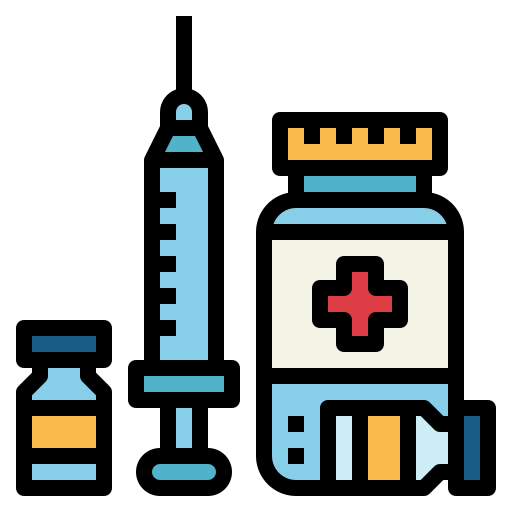Bipolar Affective Disorder (BPAD) is a chronic, recurrent cyclical mood disorder associated with high levels of suffering, occupational dysfunction, impaired social life and relationships, as well as increased morbidity and mortality. BPAD is often co-morbid with a range of other mental disorders (for example, psychosis, substance misuse, anxiety disorders, personality disorders and ADHD) and this has significant implications for both the course of the disorder and its treatment.
The treatment of BPAD is based primarily on psychotropic medication to reduce the severity of symptoms, stabilise mood and prevent relapse. The treatments are determined by the phase of illness and subtype of disorder. Individual variation in response to medication will often determine the choice of drug, as will age, side effects, interactions and associated cautions, child-bearing potential, previous history, medical co-morbidities and individual preferences. Clear, written information about BPAD, treatment options, benefits and side effects should be discussed and provided to service users and carers. Psychological interventions developed specifically for bipolar disorder or high-intensity psychological interventions should also be offered, particularly to prevent relapse and manage recurrent depressive episodes.
Treatment will always be initiated in secondary care. Initial management of acute behavioural disturbance would follow BNF guidance and include combined use of an antipsychotic and benzodiazepine if required.
Treatment of rapid cycling subtypes of BPAD should follow preferred formulary options.
The Choice and Medication website offers patient information about mental health conditions and the treatments available to help make informed decisions about choosing the right medicine: www.choiceandmedication.org/nhs24/
MONITORING
BPAD is associated with poor physical health and drug treatments can add to this. NICE recommends a physical health check for people with bipolar disorder, performed at least annually, to include weight or BMI; diet, nutritional status and level of physical activity; cardiovascular status, including pulse and blood pressure; metabolic status, including fasting blood glucose, glycosylated haemoglobin (HbA1c), prolactin, blood lipid profile and liver function. Renal/thyroid function and calcium levels are necessary, for people taking long-term lithium. People identified as having rapid or excessive weight gain, hypertension, diabetes, abnormal lipid levels, obesity (or risk factors) or are physically inactive should be managed in line with the relevant NICE guidance. The impact of alcohol, tobacco and illicit drugs on physical and mental health and potential drug interactions with medication should be discussed.
MHRA VALPROATE AND DEVELOPMENTAL DISORDERS ALERT
IMPORTANT NEW RESTRICTIONS: MHRA DRUG SAFETY UPDATES JANUARY 2024, SEPTEMBER 2024 and FEBRUARY 2025.
Additional safety measures include a requirement for a review by two specialists when initiating valproate for MALES and FEMALES under the age of 55 and for existing FEMALE patients already prescribed valproate under the age of 55. A review by two specialists is not required for existing MALE patients already taking valproate.
Valproate must not be prescribed to women/girls of childbearing potential unless enrolled in pregnancy prevention programme (PPP).
Inform male patients (of any age) who may father children of the possible increased risk of neurodevelopmental disorders in children conceived around the time of valproate use and the recommendation to use effective contraception (condoms, plus contraception used by the female sexual partner) during valproate treatment and for at least 3 months after stopping valproate.
Source: MHRA Drug Safety Update Jan 2024: New safety and educational materials to support regulatory measures in men and women under 55 years of age, Sep 2024: Valproate use in men: as a precaution, men and their partners should use effective contraception, and Feb 2025: Valproate: review by two specialists is required for initiating valproate but not for male patients already taking valproate
MHRA Resources: MHRA information page, Patient guide for women, Patient guide for men, Patient card, Patient Information Leaflet, Healthcare Professional Guide, Annual Risk Acknowledgement Form for female patients, Risk Acknowledgement Form for male patients starting valproate, Advice for male patients on valproate to use contraception, Visual risk communication diagram to be used by a healthcare professional when counselling on the risks, and infographics which clarify in which situations review by two specialists may be required: for female patients under 55 years old, for male patients under 55 years old and for male and female patients 55 years and older.
Bipolar disorder: assessment and management (NICE guidelines [CG185] Published date: September 2014; last updated February 2020)
Evidence-based guidelines for treating bipolar disorder: revised third edition – G. M Goodwin, Consensus Group of the British Association for Psychopharmacology. Journal of Psychopharmacology (2016) 1-59.
NHS Lanarkshire Information for patients: Lithium in hot weather.
